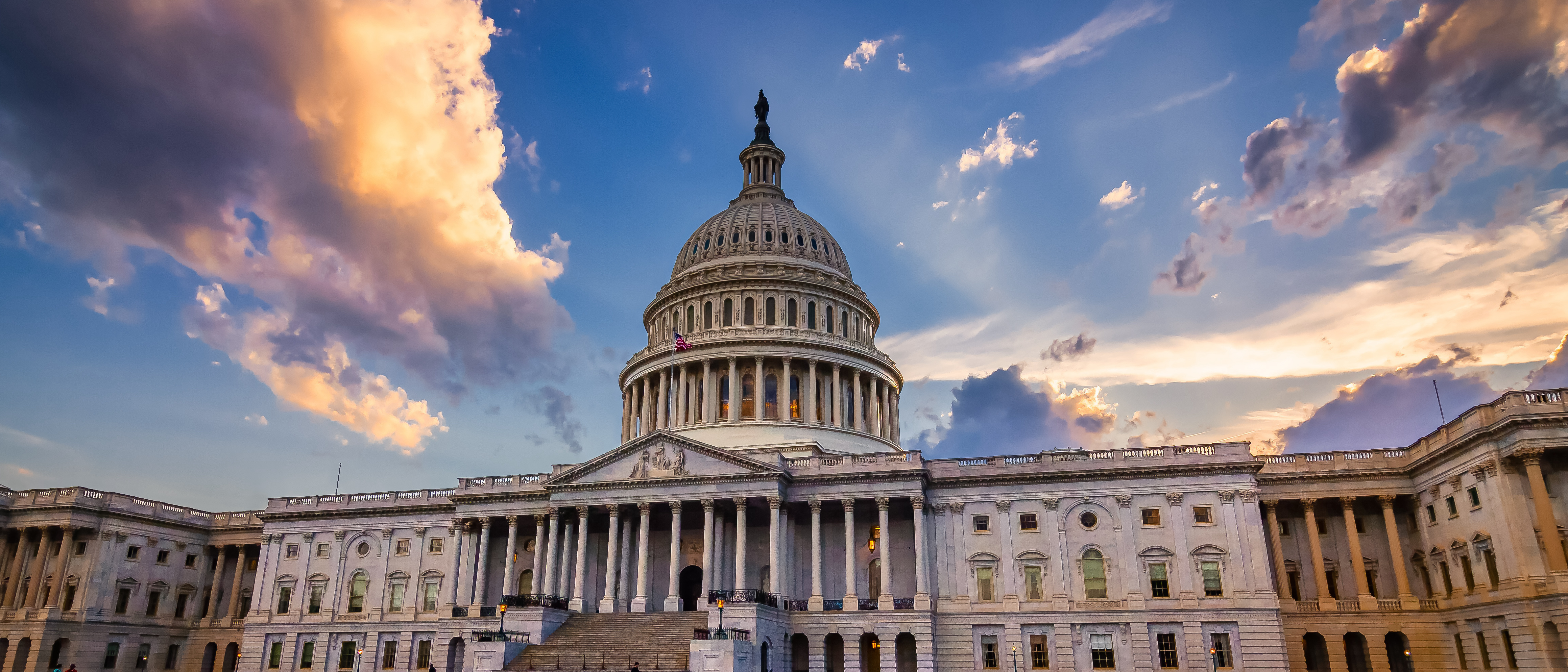NAB’s New Policy Agenda Includes Local Journalism, AI, NextGen TV and vMVPDs
The NAB has released its policy agenda for 118th Congress for local TV and radio stations

WASHINGTON, D.C.—The National Association of Broadcasters has released the Broadcaster’s Policy Agenda for the 118th Congress. The Agenda is designed to advance the industry’s work in providing trusted journalism and critical breaking news, technology innovation and community service.
Key priorities listed in the agenda include NextGen TV, keeping AM radio in cars to ensure public safety, protecting local journalism, refreshing the record on virtual MVPDs to reflect marketplace realities, working to prevent a new performance tax that hurts radio listeners, and evaluating the impact of artificial intelligence on local journalism.
In releasing the Broadcaster’s Policy Agenda, the NAB also highlighted the importance of the industry. It noted that 97% of all Americans watched or listened to a broadcast TV or radio station, that 2.52 million jobs were created by the broadcast industry, that 63.4 million Americans access broadcast TV via an antenna, that there were 17,145 full power broadcast stations in the country and that TV and radio stations generated more than $10 in community service each year, with more information at WeAreBroadcasters.com.
The NAB noted that NextGen TV is an important priority as the future of broadcast television. The NAB said that the next generation of broadcast television can deliver lifesaving advanced emergency alerting, stunning pictures, immersive and customizable audio and improved reception to enhance and expand the broadcast viewing experience.
NextGen TV combines the best features of broadcast television and broadband, allowing local stations to better personalize their broadcasts with information and interactive features to give viewers the content that is most relevant to them, the NAB added. The NextGen TV standard, aka ATSC 3.0, requires no additional spectrum and no government subsidies. To date, this free over-the-air service is available to 75% of all U.S. households.
In 2023, the FCC announced the creation of the Future of TV Initiative, a public-private initiative that consists of stakeholders from broadcasting, the consumer electronics industry, and public interest and consumer groups, to generate a road map for the NextGen TV transition, the group said.
As part of that effort, the NAB said that congress can help by urging the FCC to maintain a reasonable, flexible framework for NextGen TV deployment.
Get the TV Tech Newsletter
The professional video industry's #1 source for news, trends and product and tech information. Sign up below.
Another important priority was keeping AM radio in cars as it serves a vital role in our nation's emergency infrastructure as the backbone of the Emergency Alert System and AM radio keeps 82 million listeners connected to news, sports and entertainment each month. As part of that effort the NAB supports the bipartisan AM Radio for Every Vehicle Act (S. 1669; H.R. 3413) that was introduced in the 118th Congress. This bill would preserve AM radio in cars and ensure Americans can continue to have access to this reliable communications medium.
The Policy Agenda also highlighted the importance of defending local journalism at a time when “the dominance of Big Tech platforms threatens this vital role. Local broadcast stations must be available on all platforms and every device to remain relevant to audiences and advertisers. But Big Tech platforms have a stranglehold on digital advertising and can dictate what, if any, revenue share broadcasters receive for their valuable content.”
To address that problem, the NAB is pushing Congress to pass the bipartisan Journalism Competition and Preservation Act (JCPA) (S. 1094, H.R. TBD) to allow broadcasters and other news publishers to jointly negotiate with dominant digital platforms to ensure they are fairly compensated when their content is accessed online.
The NAB is also backing efforts to refresh the record on virtual MVPDs to reflect marketplace realities so that they would be classified like traditional cable and satellite pay TV operators. Broadcasters believe the reclassification would boost their retransmission consent fees and help them better fund local journalism. The NAB said Congress should continue to encourage the FCC to refresh its record in this proceeding to better reflect current marketplace realities.
The NAB also said it is working to prevent a new performance tax that hurts radio listeners. As part of that effort it said Broadcasters strongly support the Local Radio Freedom Act (H. Con. Res. 13, S. Con. Res. 5), a resolution that opposes a performance tax and is supported by nearly 240 bipartisan members of the House and Senate this Congress – including close to a majority of the House of Representatives.
Another policy priority, the NAB said, is evaluating the impact of artificial intelligence on local journalism.
While broadcasters relish the opportunity to embrace new technologies to better serve our communities, the improper use of artificial intelligence poses novel threats to broadcasting’s unique and indispensable role in American life, the group explained.
In an age where misinformation can spread broadly and rapidly, broadcasters’ commitment to providing reliable news is more important than ever. But the lack of attribution and sourcing in AI-generated outputs could undermine trust in broadcasters, the NAB said. It also increases the likelihood of legitimate, copyrighted broadcast content being ingested and then mixed in with unverified and inaccurate third-party content.
Additionally, AI tools may be used to create images, video and audio that use the likeness of a trusted radio or television personality in fraudulent ways. Using AI to distort, doctor or manipulate information is a significant problem and any solution must be balanced with the First Amendment. Importantly, the use of AI tools allows the ingestion of broadcasters’ copyrighted content into AI systems without authorization.
To address those and other issues, the NAB said that Congress should closely evaluate how to harness the power of AI, while ensuring new technologies do not threaten the trusted local journalism broadcasters provide.
George Winslow is the senior content producer for TV Tech. He has written about the television, media and technology industries for nearly 30 years for such publications as Broadcasting & Cable, Multichannel News and TV Tech. Over the years, he has edited a number of magazines, including Multichannel News International and World Screen, and moderated panels at such major industry events as NAB and MIP TV. He has published two books and dozens of encyclopedia articles on such subjects as the media, New York City history and economics.

